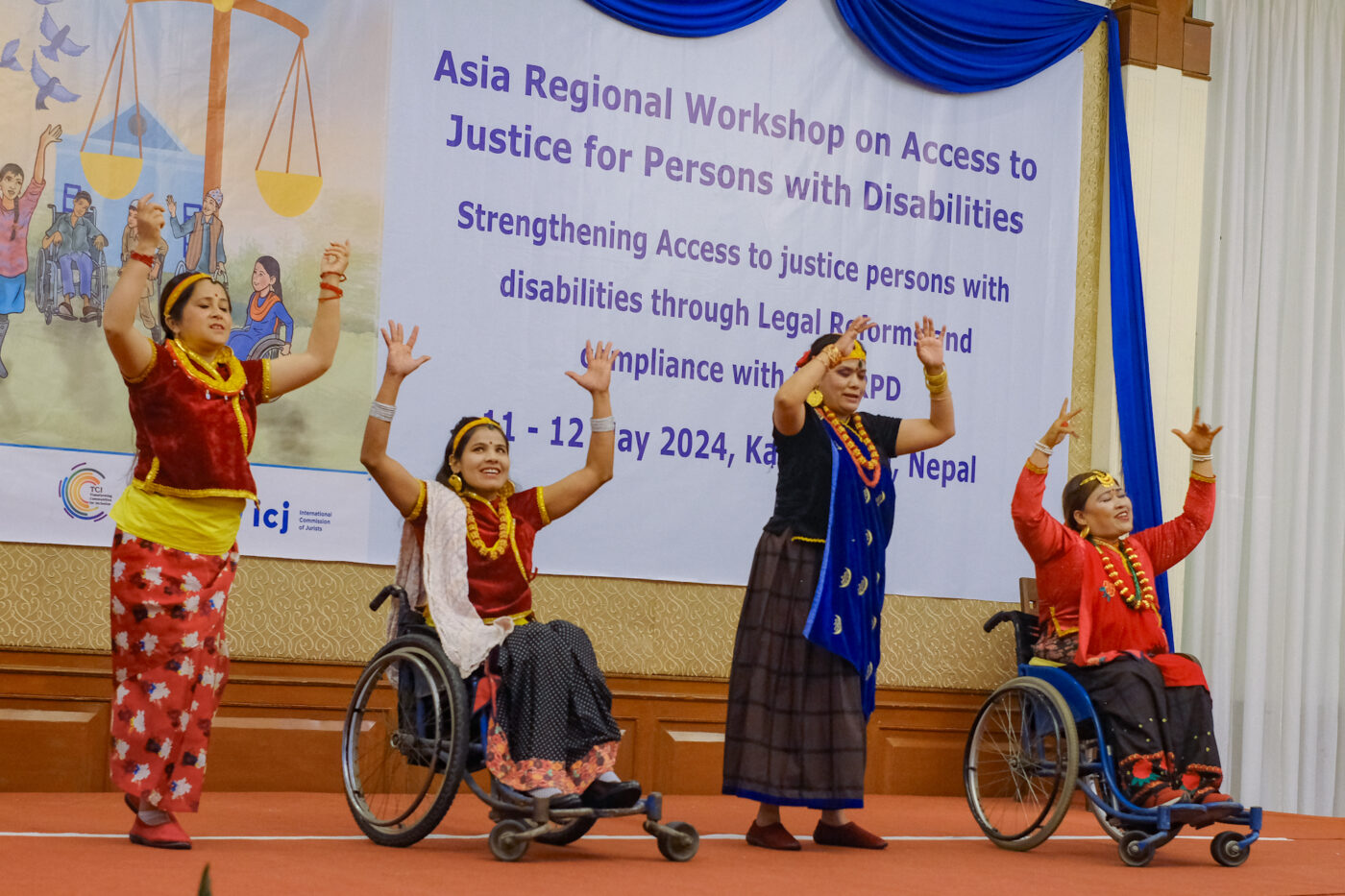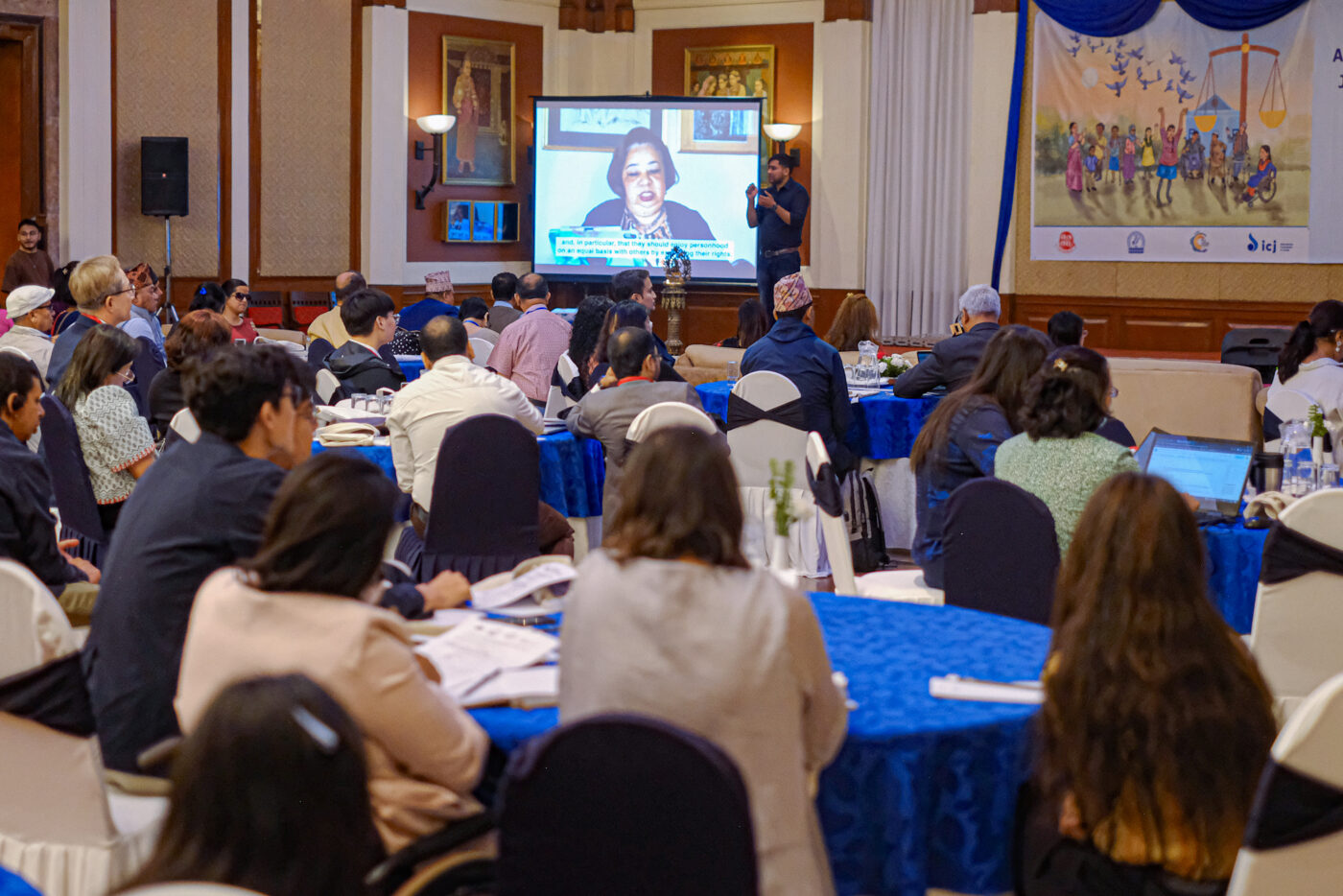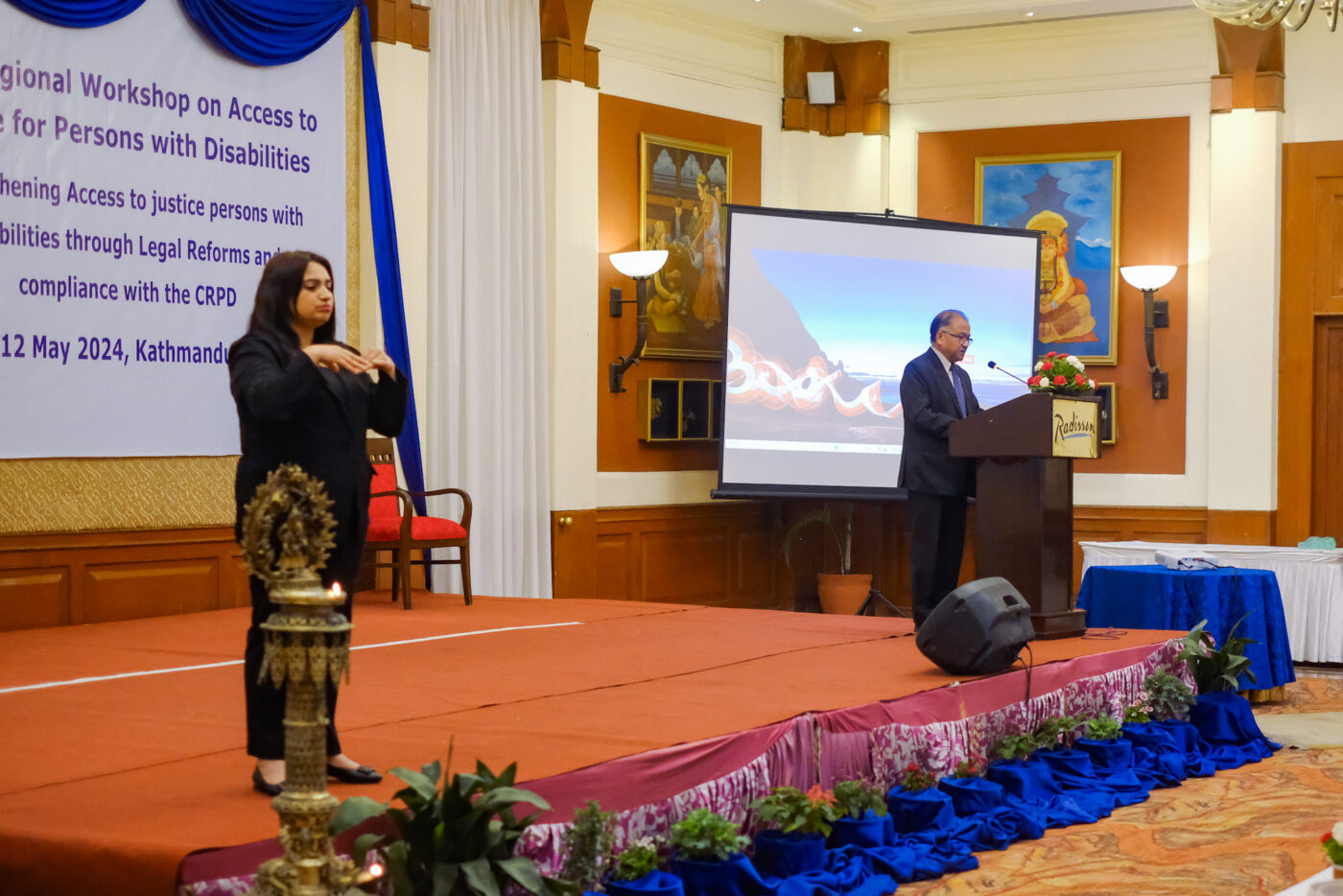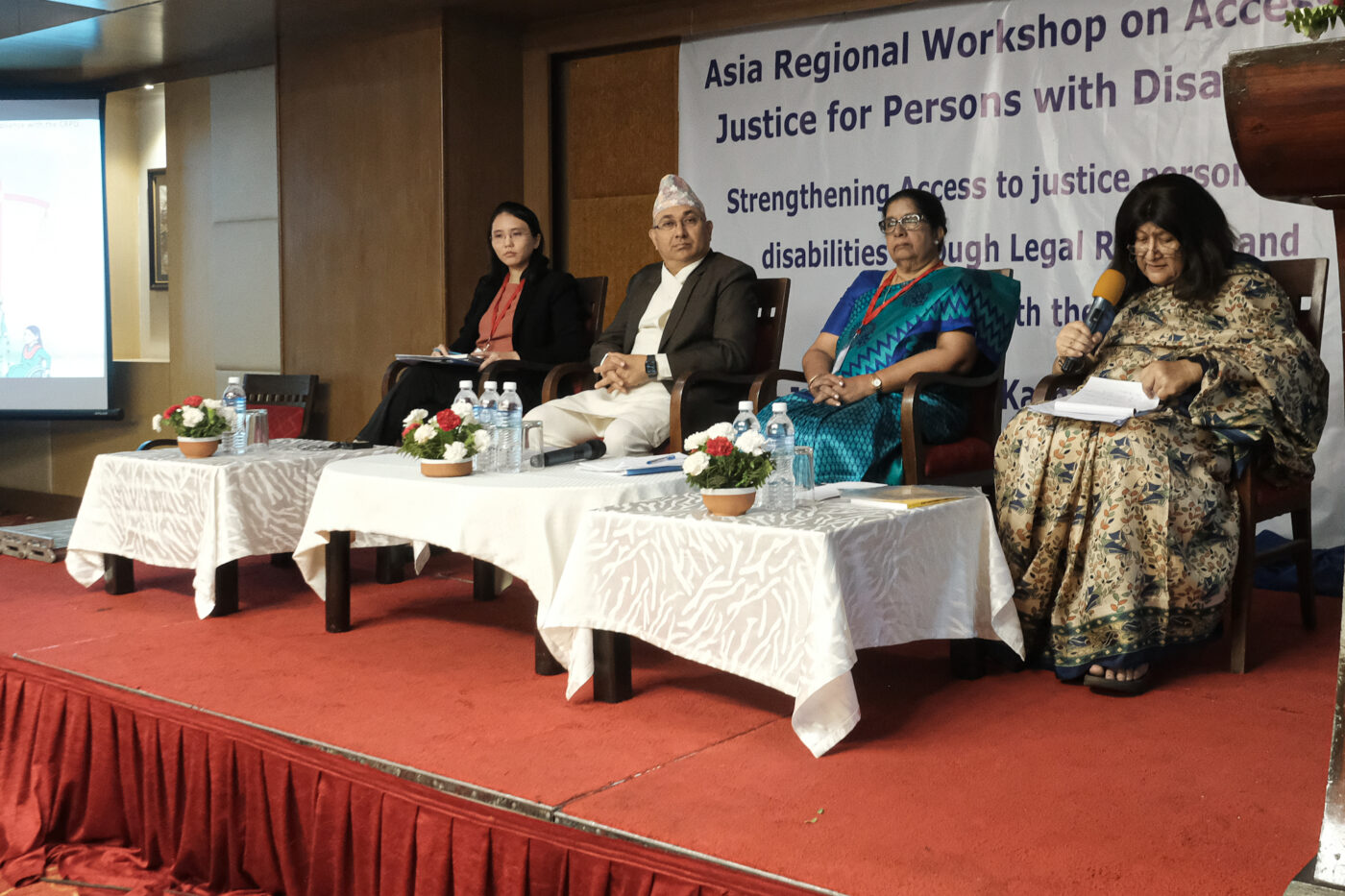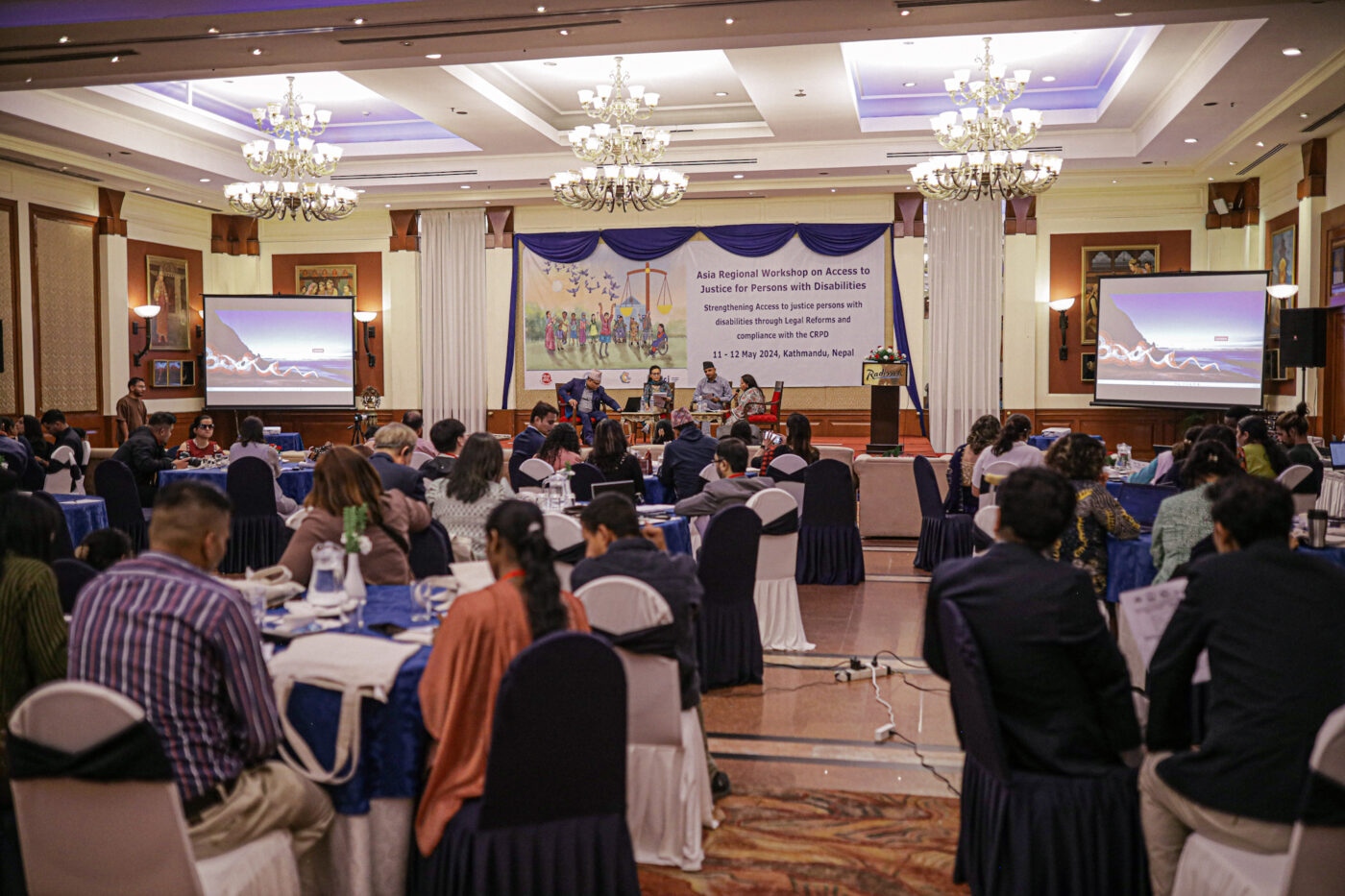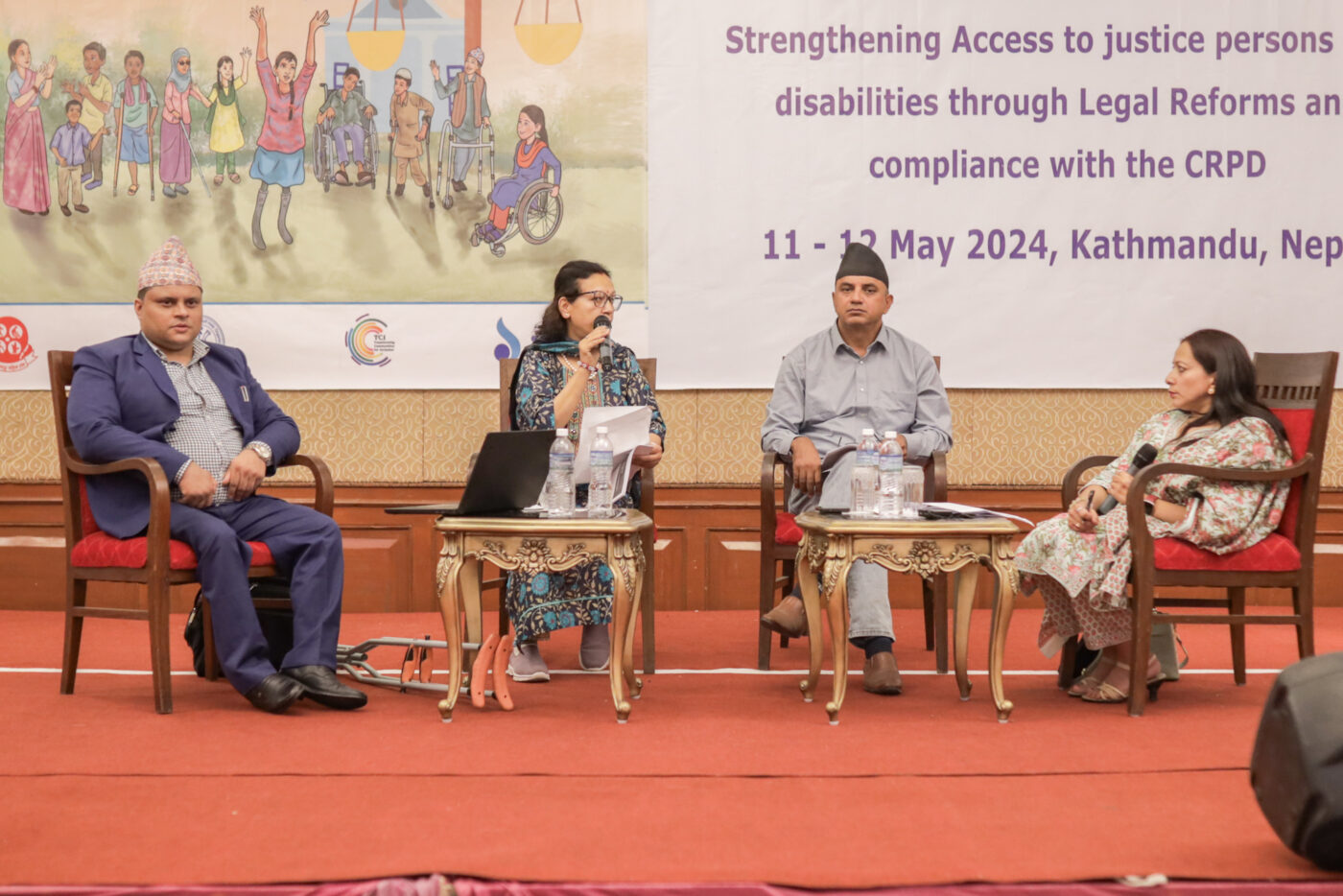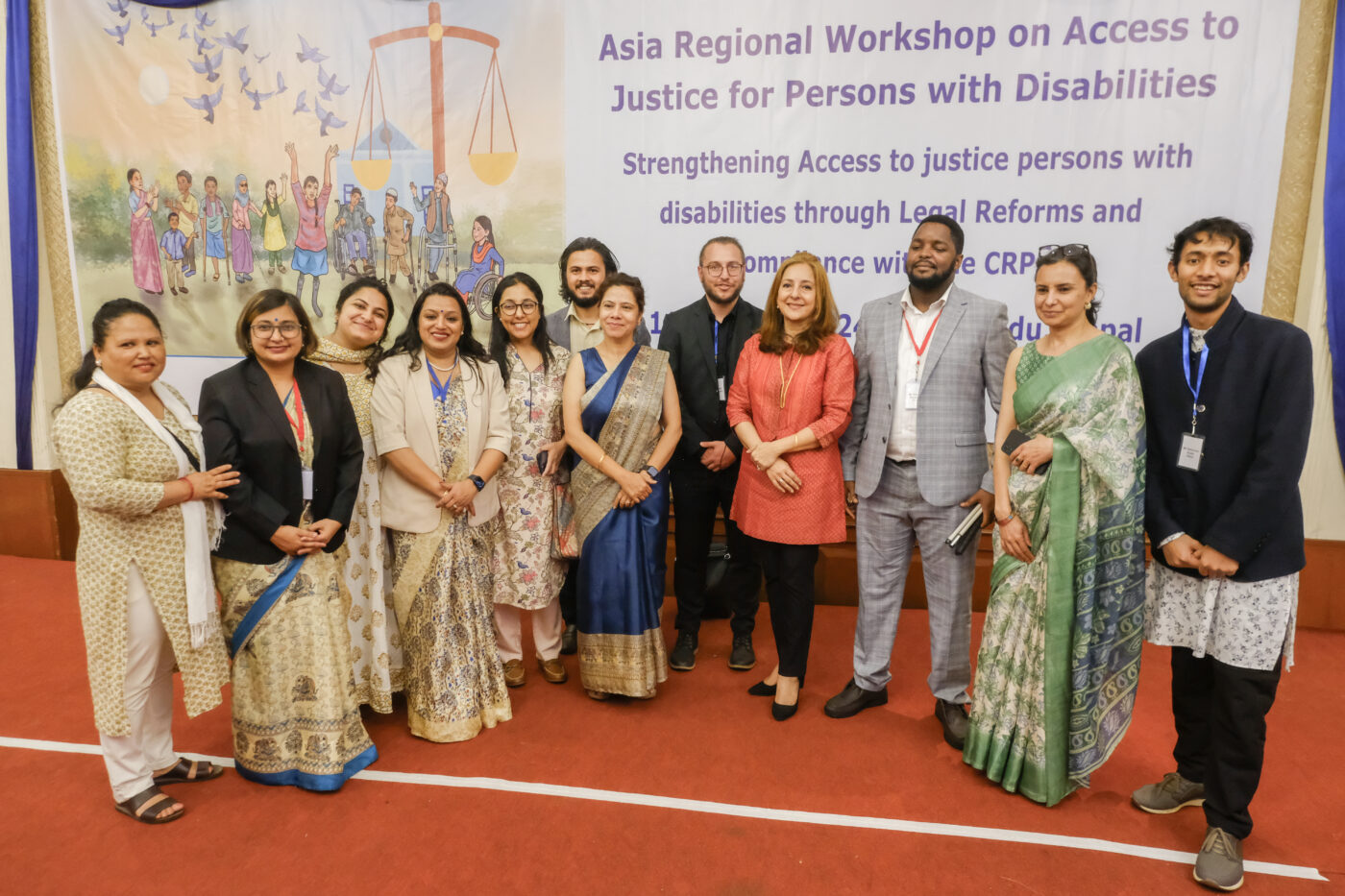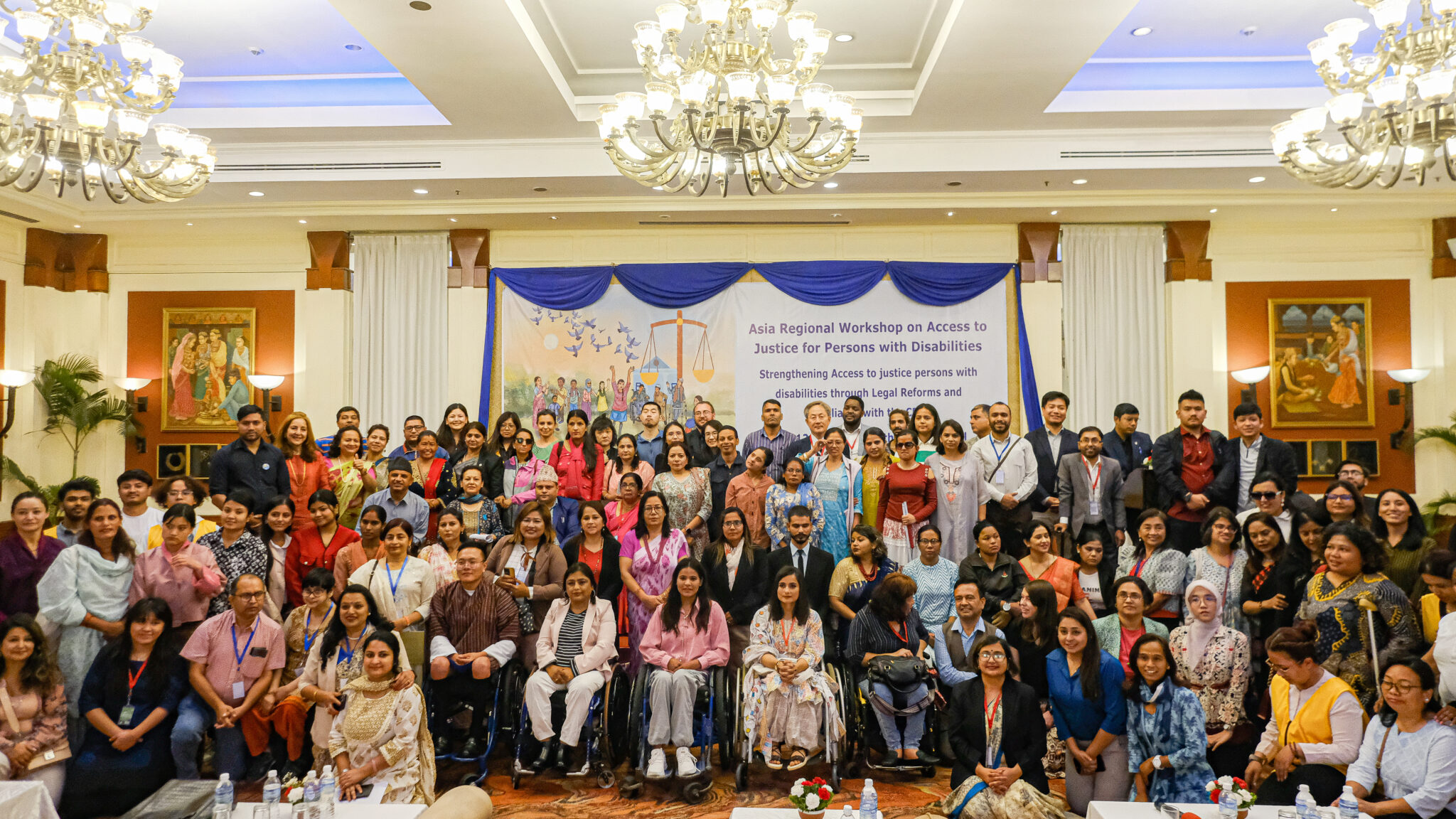Asia: People with disabilities advocate their own rights at ICJ’s first international workshop
In Asia, the ICJ successfully organized its first-ever international workshop on Access to Justice for Persons with Disabilities. One of the key features of the workshop was the participation of persons with disabilities as self-advocates.
The panels shared powerful videos that deepened our understanding of the cross-cutting nature of different human rights concerns. The event, held in Kathmandu on May 11-12, was attended by at least 120 participants from more than 15 countries. We co-organized it with two of ICJ’s local partners: the Nepal Disabled Women’s Association (NDWA) and KOSHISH, in collaboration with Transforming Communities for Inclusion (TCI), an organization working globally on the rights of persons with psychosocial disabilities.
In the opening session, one participant shared a personal story of her transformational experience from ending up on the streets with a psychosocial disability to living independently as a self-advocate, which, along with a dance performance by a women’s group with different disabilities, conveyed a powerful message: what persons with disabilities really need is solidarity and opportunity.
Through a pre-recorded video message for this event, UN Special Rapporteur on the rights of persons with disabilities, Ms. Heba Hagrass, emphasized the legal capacity of persons with disabilities, the major theme of the workshop.
Heba noted: “The right to legal capacity is indispensable for the exercise of the other human rights of persons with disabilities”.
We also benefited from the participation of ICJ Commissioner
Justice Kalyan Shrestha, who spoke on the role of court judgements to guarantee the rights of persons with disabilities in Nepal. Justice Shrestha engaged in an interactive dialogue on the link between the 8 March Principles and disability rights. We were able to connect many threads of ICJ’s programmatic work, with several participants proposing to jointly develop a guide for courts with a specific focus on enhancing access to justice for persons with disabilities, similar to the
Bangkok General Guidance.
The workshop was preceded and followed by several satellite events with former and current Supreme Court judges from India and Sri Lanka, respectively, who were hosted by the Supreme Court of Nepal, a High Court, and ICJ institutional allies associated with the judiciary
In addition, thanks to the presence of UNCRPD Committee member Saowalak Thongkuay, participants had the opportunity to understand how the Committee is working to ensure access to justice for people with disabilities through individual communications and reviewing states’ obligations through their reports, as well as delivering concluding observations. The workshop aimed at identifying common legal and practical barriers impeding effective access to justice for persons with disabilities. Another objective was to support and advance existing campaigns to secure legal reform and ensure the full realization of the rights of persons with disabilities, particularly in Nepal and more broadly in Asia. Based on the barriers identified during these two days, participants made some recommendations on advocacy strategies to pursue legal reform for access to justice for people with disabilities in the region. The ICJ, together with the co-organizers, is working to finalize a workshop declaration that will incorporate the participants’ recommendations. The declaration shall be published in a few weeks.
The workshop featured beautiful artwork created for the event by a Nepali woman artist with hearing impairment, as well as the moving dance performance by the previously mentioned group of dancers.
Following the event, the ICJ has been receiving positive feedback. One representative commented:
“Dear Colleagues,
Dropping in to express my heartfelt gratitude for the homely welcome to Nepal and the luxurious experience at the Conference. I am back to work now with a lot of new insights and added energies.
For your information, this was my first international conference experience on disability inclusion, and it was the best start. Thank you once again and I look forward to keeping in touch and working together again”. – Phurpa Wangchuk, Bhutan (Self Advocate, Disability Rights Activist)
